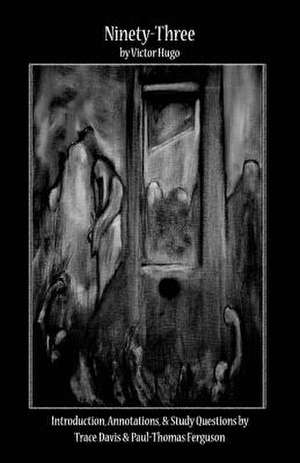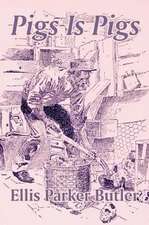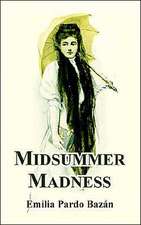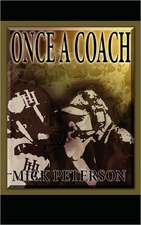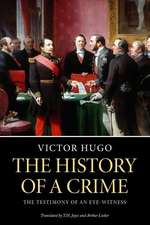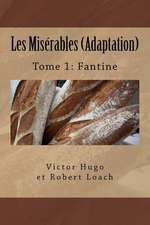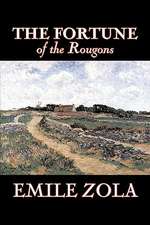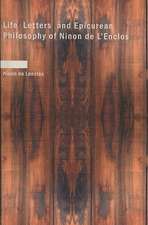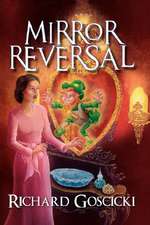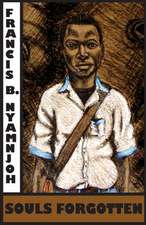Ninety-Three: Cambridge Studies in Linguistics (Paperback)
Autor Victor Hugo Ilustrat de Jody Fallon Design de Teresa Johnstonen Limba Engleză Paperback
| Toate formatele și edițiile | Preț | Express |
|---|---|---|
| Paperback (4) | 82.93 lei 3-5 săpt. | +15.48 lei 7-13 zile |
| Mint Editions – iun 2021 | 82.93 lei 3-5 săpt. | +15.48 lei 7-13 zile |
| Fredonia Books (NL) – 10 apr 2001 | 116.09 lei 6-8 săpt. | |
| Mondial – 31 mai 2008 | 134.69 lei 6-8 săpt. | |
| Kennedy & Boyd – 31 aug 2008 | 149.59 lei 6-8 săpt. | |
| Hardback (2) | 146.15 lei 3-5 săpt. | |
| Mint Editions – 8 iun 2021 | 146.15 lei 3-5 săpt. | |
| Paper Tiger (NJ) – 30 apr 2002 | 306.38 lei 6-8 săpt. |
Preț: 110.51 lei
Nou
Puncte Express: 166
Preț estimativ în valută:
21.15€ • 22.16$ • 17.48£
21.15€ • 22.16$ • 17.48£
Carte indisponibilă temporar
Doresc să fiu notificat când acest titlu va fi disponibil:
Se trimite...
Preluare comenzi: 021 569.72.76
Specificații
ISBN-13: 9781469943091
ISBN-10: 1469943093
Pagini: 412
Dimensiuni: 140 x 216 x 21 mm
Greutate: 0.48 kg
Editura: CREATESPACE
Seria Cambridge Studies in Linguistics (Paperback)
ISBN-10: 1469943093
Pagini: 412
Dimensiuni: 140 x 216 x 21 mm
Greutate: 0.48 kg
Editura: CREATESPACE
Seria Cambridge Studies in Linguistics (Paperback)
Notă biografică
Victor Hugo (1802-1885) was a French poet and novelist. Born in Besançon, Hugo was the son of a general who served in the Napoleonic army. Raised on the move, Hugo was taken with his family from one outpost to the next, eventually setting with his mother in Paris in 1803. In 1823, he published his first novel, launching a career that would earn him a reputation as a leading figure of French Romanticism. His Gothic novel The Hunchback of Notre-Dame (1831) was a bestseller throughout Europe, inspiring the French government to restore the legendary cathedral to its former glory. During the reign of King Louis-Philippe, Hugo was elected to the National Assembly of the French Second Republic, where he spoke out against the death penalty and poverty while calling for public education and universal suffrage. Exiled during the rise of Napoleon III, Hugo lived in Guernsey from 1855 to 1870. During this time, he published his literary masterpiece Les Misérables (1862), a historical novel which has been adapted countless times for theater, film, and television. Towards the end of his life, he advocated for republicanism around Europe and across the globe, cementing his reputation as a defender of the people and earning a place at Paris¿ Panthéon, where his remains were interred following his death from pneumonia. His final words, written on a note only days before his death, capture the depth of his belief in humanity: ¿To love is to act.¿
Descriere
Descriere de la o altă ediție sau format:
A historical novel built upon the questions "Can a good action be a bad action? Does not he who spares the wolf kill the sheep?" centers on revolutionary France; just as the plot is an abstract judicial difficulty, the hero is an abstract historical force.
A historical novel built upon the questions "Can a good action be a bad action? Does not he who spares the wolf kill the sheep?" centers on revolutionary France; just as the plot is an abstract judicial difficulty, the hero is an abstract historical force.
